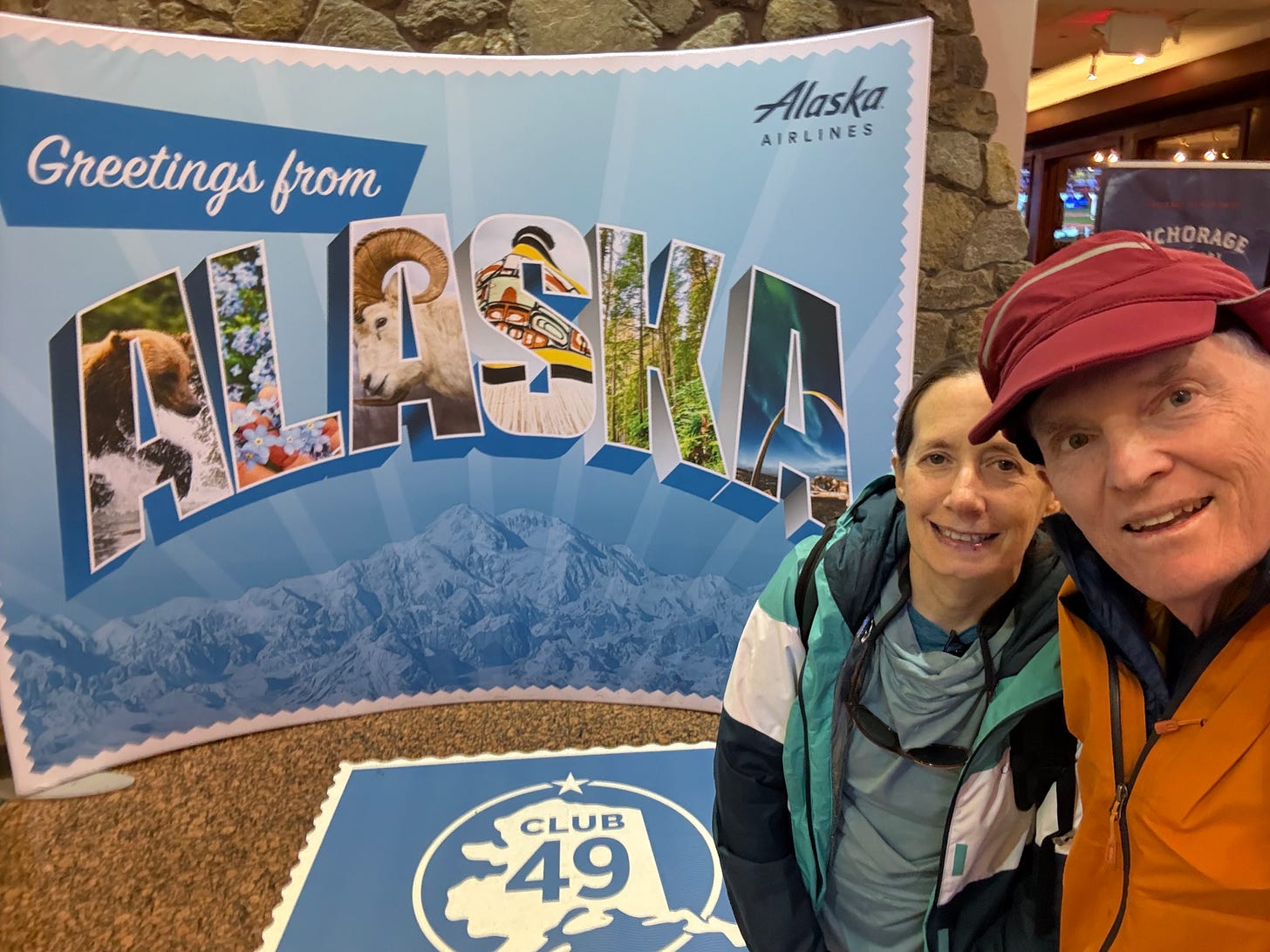Yea — what she said! Exactly, Sen. Murkowski.
First Take: News In Context
Note to reader: Along our journey together I will be posting what I call “First Takes,” and this is the inaugural one. These will be pieces where I look at recent happenings, things in the news, or things that are new to me. I won’t just be reporting or passing along info with First Takes. I will be putting these in the context of our narrative arch and how they relate to our creating climate hope together.
Sen. Lisa Murkowski (R-AK) recently sat down with NPR for an interview. What she says about the need for speaking out (see below) is completely in keeping with what we in the Climate Movement need to be doing.
As I will be discussing in great depth with this Substack, the Climate Movement is our greatest source of hope — but not the only one. We are first among equals in what I am calling the Catalytic-4, short for the four major Catalytic Sources of Transformation that will drive our efforts to overcome climate change.
One of the characteristics and goals of the Climate Movement is that we need to be big enough and broad enough and active enough so that we cannot be suppressed or missed or ignored. Growing the Climate Movement is the most strategic thing we can be doing right now and for the foreseeable future. We must become, we will become, the greatest and most long-lasting social change movement in the history of the world.
To produce the change needed at speed and scale, we must not only have changes in policy and politics, we must have cultural and societal change. To do so requires message saturation and values engagement so that the need for climate action remains at the forefront of everyone’s mind.
That’s why, for example, one person in front of where they live with a sign that says something like “Climate Action Now —Let’s Talk,” is strategic — because it contributes to us being big and broad and active enough. Pretty soon someone is going to talk to that person, then somebody is going to join the Climate Movement. And then these neighborhood folks are going to create a small group, what I am calling a Climate Action Team. Pretty soon they are transforming their neighborhood and then their community.
So to get started, we don’t need a big organized effort like the recent (and excellent!) No Kings marches that Sen. Murkowski references. We don’t have to wait for someone else to organize us. You don’t need anyone’s permission. You were born with permission! The only resources you need are yourself, some of your time, and a hand-drawn sign on a piece of poster board. That’s it.
When we are big and broad and active enough, that’s when others will start listening and paying attention — not just politicians like Sen. Murkowski, but our neighbors and regular folk like ourselves.
So right now it’s more important for us to be talking to our friends and those in our social networks. It is more important to grow our Movement. Many nation-wide marches like No Kings will also be needed. And when we’re big and broad and active enough, then politicians and others with power will really start to listen. They have a certain type of power. But we have people power. And that will carry the day.
So without further ado, here’s what Sen. Murkowski had to say:
“Don't assume that anybody else is going to speak up for you. Don't be ground down because you don't think that you're being heard.
It's when you stop speaking up that those of us who are in a position to listen start to think, ‘Well, maybe your silence means you think everything is OK.’
And if you don't think it's OK it is your obligation to speak up. I've never been to a protest as a protester.
What we saw the weekend before last with marches around the country [the No Kings marches on June 14] where people were speaking up in some of the smallest villages in Alaska. We had people that were speaking out and maybe they were just speaking out to their neighbors. But I think that that's some of the best part of who we are. We're in a country where you feel like you can speak out, do it peaceably, do it without violence…
There should be a desire to be involved in your community, in your state, in helping others be better people.
You should want to do this. In fact, there's an obligation for you to do it at some different level. And you may think it requires a specific resume or a specific background. It doesn't. It just requires a heart to try to make a difference. You do that and we're going to be OK.”
Remember to check out the Intro Series and other First Takes. If you like this post, please “like,” comment, and share.


